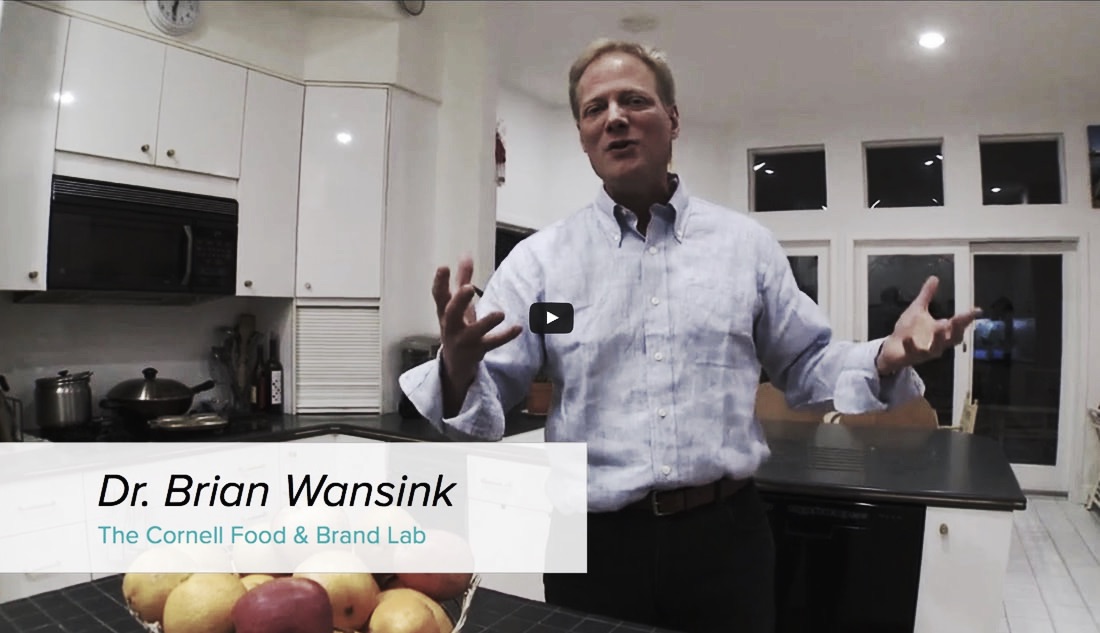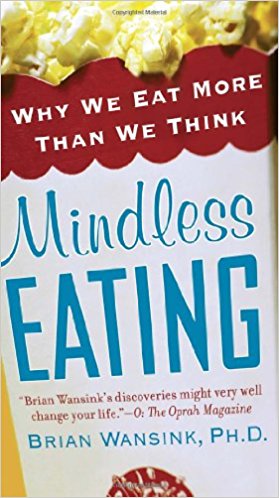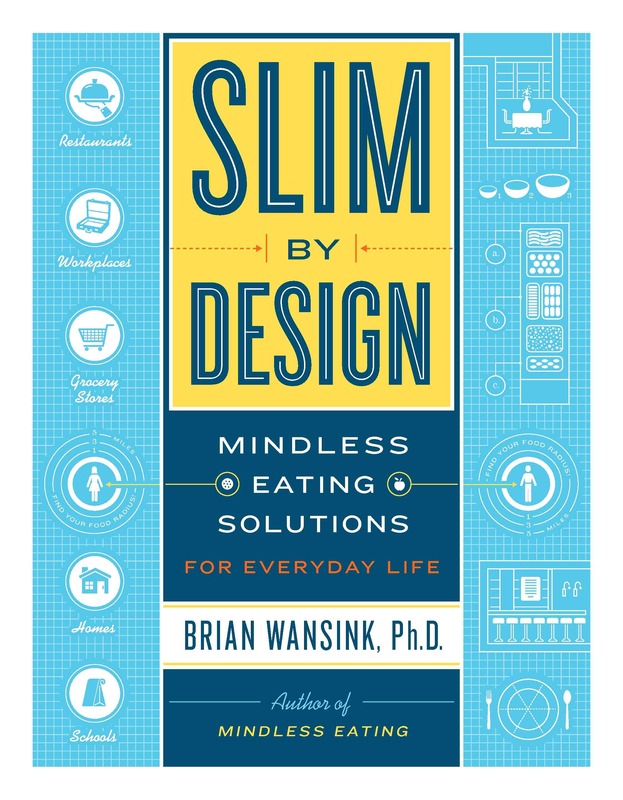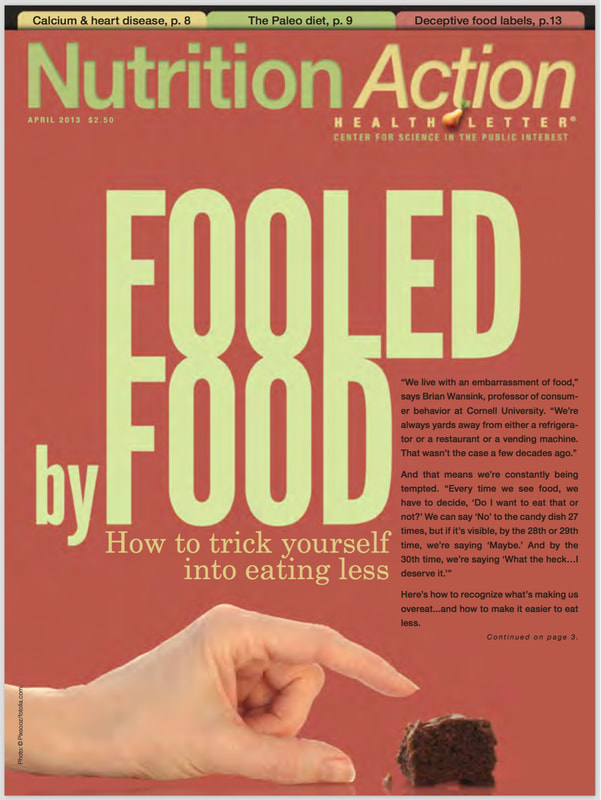|
We have all heard of somebody’s cousin’s sister who went on a huge diet before her high school reunion, lost tons of weight, kept it off, won the lottery, and lived happily ever after. Yet we also know about 95 times as many people who started a diet and gave up in discouragement, or who started a diet, lost weight, gained more weight, and thengave up in discouragement.[i] After that, they started a different diet and repeated the same depriving, discouraging, demoralizing process. Indeed, it is estimated that over 95% of all people who lose weight on a diet, gain it back.[ii] Most diets are deprivation diets. We deprive ourselves or deny ourselves of something – carbohydrates, fat, red meat, snacks, pizza, breakfast, chocolate, and so forth. Unfortunately, deprivation diets don’t work for three reasons: 1) Our body fights against them, 2) our brain fights against them, and 3) our day-to-day environment is booby-trapped with food. Millions of years of evolution have made our body too smart to fall for our little, “I’m-only-eating-salad,” trick. Our body’s metabolism is efficient. When it has plenty of food to burn, it turns the furnace up and burns up our fat reserves faster. When it has less food to burn, it turns down the furnace and burns it more slowly and efficiently. This efficiency helped our ancestors survive famines and barren winters. It does not help today’s deprived dieter. If you eat too little, the body goes into conservation mode and makes it even tougher to burn those pounds off. This type of weight loss is not mindless. It is like pushing a boulder up hill every second of every day. How much weight loss triggers the conservation switch? It seems that we can lose half a pound a week without triggering a metabolism slow-down.[iv]Some people may be able to lose more, but everyone can lose at least half a pound a week and still be in full-burn mode. The only problem is that this is too slow for many people. Weight loss has to be all or nothing. This is why so many impatient people try to lose it all and end up losing nothing. Now for our brains. If we consciously deny ourselves something again and again, we are likely to end up craving it more and more.[v] It does not matter whether you are deprived of affection, vacation, television, or your favorite foods. Being deprived from anything you really like is not a great way to enjoy life. Nevertheless, the first thing many dieters do is cut out their comfort foods. This becomes a recipe for dieting disaster because any diet that is based on denying yourself the foods you really like is going to be really temporary. The foods we do not bite can come back to bite us. When the diet ends – either because of frustration or because of temporary success – you are back wolfing down these comfort foods with a hungry vengeance. With all that sacrificing you’ve been doing, there is a lot of catching up to do. When it comes to losing weight, we cannot rely only on our brain, or our “cognitive control,” A.K.A. willpower.[vii] We make an estimated 248[viii]food-related decisions each day, and it is almost impossible to have them all be text-book perfect. We have millions of years of evolution and instinct telling us to eat as often as we can and to eat as much as we can. Most of us simply do not have the mental fortitude to stare at a plate of warm cookies on the table and say, “I’m not going to eat a cookie, I’m not going to eat a cookie,” and then not eat the cookie. There is only so long before our “No, no, maybe, maybe” turns into a “Yes.” Our bodies fight against deprivation, and our brains fight against deprivation.[ix]And to make matters worse, our day-to-day environment is set-up to booby-trap any half-hearted effort we can muster up.There are great smells on every fast food corner. There are warm, comfort food feelings we get from television commercials. There are better-than-homemade tasting 85 cent snacks in every vending machine and gas station. We have billions of dollars worth of marketing giving us the perfect foods that our little hearts and big tummies desire. Yet before we blame those evil marketers let us look at the traps we set for ourselves. We make an extra “family-size” portion of pasta we make so no one goes hungry. We lovingly leave latch-key snacks on the table for our children (and ourselves). We use the nice, platter-size dinner plates that we can pile up with food. We heat up a piece of apple pie in the microwave while the lonely apple shivers in the crisper. Best intentions aside, we are Public Enemy #1 when it comes to booby-trapping the diets and willpower of both ourselves and our family. The good news is that the same levers that almost invisibly lead you to slowly gain weight can also be pushed in the other direction to just as invisibly lead you to slowly lose weight. This will lead us to lose weight unknowingly. If we do not realize we are eating a little less than we need, we do not feel deprived. If we do not feel deprived, we are less likely to backslide and find ourselves overeating to compensate for everything we have forgone. The key lies in the Mindless Margin. References
[i]The speed at which you regain weight after going off a diet is almost always directly related to the speed you lost the weight to begin with. If you miraculously lose 10 pounds in 2 days with the new Celebrity Fad Diet, you are likely to miraculously gain it back almost as fast. [ii]See Maureen T. Mcguire, Rita R. Wing, Mary L. Klem and James O. Hill, “What predicts weight regain in a group of successful weight losers?” Journal of Consulting and Clinical Psychology(1999), 67:2, 177-185. [iii]Quotations were adopted from “Last-Minute Diet Secrets, People, March 16, 2004, pp. 122-5. [iv] This conclusion from a series of studies is alluded to in David A. Levitsky, “The Non-regulation of Food Intake in Humans: Hope for Reversing the Epidemic of Obesity,” Physiology & Behavior(December 2005), 86:5, 623-632. [v]Much of the best work of restrained eaters has been conducted by Janet Polivy and C. Peter Herman. A typical example of this is Janet Polivy, J. Coleman and C. Peter Herman, “The Effect of Deprivation on Food Cravings and Eating Behavior in Restrained and Unrestrained Eaters,”International Journal of Eating Disorders(December 2005), 38:4, 301-309. [vi]This syndicated column was widely reprinted with the name of the nationally-known psychologist. This account was taken from “News of the Weird,” Funny times, October 2005, p. 25. Lisa G. Berzins, [vii]John P. Foreyt, “Need for Lifestyle Intervention: How to Begin,” American Journal of Cardiology,(August 22, 2005), 96:4A, pp. 11-14. [viii]What is interesting is that most people initially think they only make an average of less than 30 of these decisions. It’s evidence of how mindless they are. More can be found in Brian Wansink and Colin R. Payne (2006), “Estimates of Food-related Decisions Across BMI,” under review at Psychological Reports. [ix]The best current thinking on this is being done by Roy Baumeister. See Roy F. Baumeister, “Yielding to Temptation: Self-Control Failure, Impulsive Purchasing, and Consumer Behavior,” Journal of Consumer Research(2002), 28:4, 670-76. Other work in the marketing area include that by Erica M. Okada, “Justification Effects on Consumer Choice of Hedonic and Utilitarian Goods,” Journal of Marketing Research(2005), 42:1, 43-53, and by Baba Shiv and Alexander Fedorikhin, “Heart and Mind in Conflict: The Interplay of Affect and Cognition in Consumer Decision Making,” Journal of Consumer Research(December 1999), 26, 278-92.
0 Comments
Leave a Reply. |
The Mission:For 30 years my Lab and I have focused on discovering secret answers to help people live better lives. Some of these relate to health and happiness (and often to food). Please share whatever you find useful.
Blog Categories
All
|
||||||||





 RSS Feed
RSS Feed